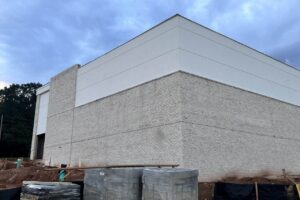Introduction
Global trade has always been the backbone of the world’s economy. However, businesses often face challenges when it comes to managing goods that cross borders. Long customs processes, high duties, and storage issues can slow everything down. This is where Foreign Trade Zones and Customs Bonded solutions become useful. These systems allow businesses to store, manage, and even process goods without paying duties until the products actually enter the market.
In this blog, the reader will learn how these solutions work, why they are important, and how they help businesses cut costs and operate smoothly. The discussion will also highlight customs bonded logistics, FTZ warehousing, and foreign trade zone storage, showing how all these elements connect to create a powerful trade advantage.
How Foreign Trade Zones and Customs Bonded Solutions Work
To understand the benefits, one must first know what these systems mean. A Foreign Trade Zone, also known as an FTZ, is a special area set up near ports or airports where imported goods can be stored, processed, or even assembled without paying immediate duties. Similarly, customs bonded solutions allow businesses to store goods in secure warehouses until the final destination of the goods is decided.
Simplifying Trade Rules
When products enter a country, they normally go through customs right away. Duties, tariffs, and other fees must be paid upfront. However, with FTZ warehousing or customs bonded logistics, these payments are delayed until the goods leave the zone. This system makes it easier for companies to plan their finances and avoid paying extra charges too early.
Building Flexibility for Companies
Moreover, companies can bring in raw materials, store them in a foreign trade zone storage facility, and later use them for production. If the final goods are exported, they may avoid paying duties altogether. Conversely, if the goods enter the domestic market, duties are paid at that point. This flexibility reduces costs and helps businesses compete better in global markets.
Why Businesses Choose FTZ Warehousing
FTZ warehousing is more than just storage. It is a full trade solution that improves efficiency.
Reducing Costs
One of the biggest reasons companies choose FTZs is cost reduction. For instance, if raw materials are taxed higher than the finished goods, businesses can import the raw materials into an FTZ, make the finished products inside the zone, and then pay a lower duty when selling them locally. This process is known as inverted tariff relief, and it saves significant money.
Enhancing Supply Chain Management
Another advantage of FTZ warehousing is better supply chain control. Goods can be received, sorted, and even repackaged before entering the local market. Companies can hold large amounts of inventory in foreign trade zone storage facilities without worrying about immediate tax payments. This ensures smoother operations and reduces the risk of stock shortages.
Attracting International Trade
Furthermore, FTZs make regions more attractive for global trade. Investors and businesses often prefer operating in areas with FTZ warehousing because it offers them tax savings, faster customs clearance, and better access to logistics networks. In turn, this creates jobs and strengthens the local economy.
The Role of Customs Bonded Logistics
While FTZs are powerful, customs bonded logistics also plays a vital role in international trade.
Safe and Secure Storage
Customs bonded warehouses are highly secure facilities monitored by customs authorities. Goods remain under bond until duties are paid or until the products are re-exported. This adds a layer of safety for both the business and the government, ensuring no illegal trade or duty evasion.
Supporting Re-Exports
A unique advantage of customs bonded solutions is that businesses can import goods, keep them in the warehouse, and then re-export them without paying duties. For example, if a company brings in electronics from Asia but decides to sell them to a buyer in Europe, the goods can move directly without extra taxes. This saves both time and money.
Improving Logistics Efficiency
Moreover, customs bonded logistics integrates well with FTZ warehousing. Businesses can manage their global supply chains more effectively, reduce unnecessary costs, and keep operations flexible. Together, these systems create a smoother trade environment where delays and extra charges are minimized.
Connecting FTZ Warehousing with Customs Bonded Logistics
Both systems share the same goal: making international trade easier and more efficient.
Creating Trade Hubs
Countries that establish strong FTZ warehousing and customs bonded solutions often become global trade hubs. For example, cities near major ports with foreign trade zone storage attract companies looking for cost savings and efficient logistics. This not only supports businesses but also boosts local economies through job creation and investment.
Helping Small and Large Businesses
Another important point is that these systems are not just for big corporations. Small and medium-sized businesses also benefit from customs bonded logistics and FTZ warehousing. They can bring in goods in smaller batches, delay duty payments, and expand their reach into new markets without huge upfront costs.
Building Future Trade Advantages
Conversely, countries without such systems often struggle to compete. Businesses may move to regions that offer FTZs and bonded warehouses, leaving behind areas that fail to modernize. This shows the growing importance of these trade solutions in shaping the future of global business.
Conclusion
Foreign Trade Zones and Customs Bonded solutions are powerful tools that simplify global trade. They allow businesses to store, process, and move goods without paying duties immediately, giving them flexibility and financial relief. With the help of customs bonded logistics, FTZ warehousing, and foreign trade zone storage, companies can cut costs, improve supply chains, and expand into new markets.
Moreover, these systems support both small and large businesses, create trade hubs, and help countries remain competitive in the global economy. By adopting such solutions, businesses and governments alike can build a smoother path for international trade.
- Foreign Trade Zones and Customs Bonded Solutions for Global Trade
- Here’s a full draft of your blog following all the instructions: --- # Making Global Trade Easier with Smart Warehousing ## Introduction Global trade has always been the backbone of the world’s economy. However, businesses often face challenges when it comes to managing goods that cross borders. Long customs processes, high duties, and storage issues can slow everything down. This is where **Foreign Trade Zones and Customs Bonded solutions** become useful. These systems allow businesses to store, manage, and even process goods without paying duties until the products actually enter the market. In this blog, the reader will learn how these solutions work, why they are important, and how they help businesses cut costs and operate smoothly. The discussion will also highlight **customs bonded logistics**, **FTZ warehousing**, and **foreign trade zone storage**, showing how all these elements connect to create a powerful trade advantage. ## How Foreign Trade Zones and Customs Bonded Solutions Work To understand the benefits, one must first know what these systems mean. A Foreign Trade Zone, also known as an FTZ, is a special area set up near ports or airports where imported goods can be stored, processed, or even assembled without paying immediate duties. Similarly, customs bonded solutions allow businesses to store goods in secure warehouses until the final destination of the goods is decided. ### Simplifying Trade Rules When products enter a country, they normally go through customs right away. Duties, tariffs, and other fees must be paid upfront. However, with FTZ warehousing or customs bonded logistics, these payments are delayed until the goods leave the zone. This system makes it easier for companies to plan their finances and avoid paying extra charges too early. ### Building Flexibility for Companies Moreover, companies can bring in raw materials, store them in a **foreign trade zone storage** facility, and later use them for production. If the final goods are exported, they may avoid paying duties altogether. Conversely, if the goods enter the domestic market, duties are paid at that point. This flexibility reduces costs and helps businesses compete better in global markets. ## Why Businesses Choose FTZ Warehousing FTZ warehousing is more than just storage. It is a full trade solution that improves efficiency. ### Reducing Costs One of the biggest reasons companies choose FTZs is cost reduction. For instance, if raw materials are taxed higher than the finished goods, businesses can import the raw materials into an FTZ, make the finished products inside the zone, and then pay a lower duty when selling them locally. This process is known as inverted tariff relief, and it saves significant money. ### Enhancing Supply Chain Management Another advantage of FTZ warehousing is better supply chain control. Goods can be received, sorted, and even repackaged before entering the local market. Companies can hold large amounts of inventory in **foreign trade zone storage** facilities without worrying about immediate tax payments. This ensures smoother operations and reduces the risk of stock shortages. ### Attracting International Trade Furthermore, FTZs make regions more attractive for global trade. Investors and businesses often prefer operating in areas with FTZ warehousing because it offers them tax savings, faster customs clearance, and better access to logistics networks. In turn, this creates jobs and strengthens the local economy. ## The Role of Customs Bonded Logistics While FTZs are powerful, customs bonded logistics also plays a vital role in international trade. ### Safe and Secure Storage Customs bonded warehouses are highly secure facilities monitored by customs authorities. Goods remain under bond until duties are paid or until the products are re-exported. This adds a layer of safety for both the business and the government, ensuring no illegal trade or duty evasion. ### Supporting Re-Exports A unique advantage of customs bonded solutions is that businesses can import goods, keep them in the warehouse, and then re-export them without paying duties. For example, if a company brings in electronics from Asia but decides to sell them to a buyer in Europe, the goods can move directly without extra taxes. This saves both time and money. ### Improving Logistics Efficiency Moreover, customs bonded logistics integrates well with FTZ warehousing. Businesses can manage their global supply chains more effectively, reduce unnecessary costs, and keep operations flexible. Together, these systems create a smoother trade environment where delays and extra charges are minimized. ## Connecting FTZ Warehousing with Customs Bonded Logistics Both systems share the same goal: making international trade easier and more efficient. ### Creating Trade Hubs Countries that establish strong FTZ warehousing and customs bonded solutions often become global trade hubs. For example, cities near major ports with foreign trade zone storage attract companies looking for cost savings and efficient logistics. This not only supports businesses but also boosts local economies through job creation and investment. ### Helping Small and Large Businesses Another important point is that these systems are not just for big corporations. Small and medium-sized businesses also benefit from customs bonded logistics and FTZ warehousing. They can bring in goods in smaller batches, delay duty payments, and expand their reach into new markets without huge upfront costs. ### Building Future Trade Advantages Conversely, countries without such systems often struggle to compete. Businesses may move to regions that offer FTZs and bonded warehouses, leaving behind areas that fail to modernize. This shows the growing importance of these trade solutions in shaping the future of global business. ## Conclusion Foreign Trade Zones and Customs Bonded solutions are powerful tools that simplify global trade. They allow businesses to store, process, and move goods without paying duties immediately, giving them flexibility and financial relief. With the help of **customs bonded logistics**, **FTZ warehousing**, and **foreign trade zone storage**, companies can cut costs, improve supply chains, and expand into new markets. Moreover, these systems support both small and large businesses, create trade hubs, and help countries remain competitive in the global economy. By adopting such solutions, businesses and governments alike can build a smoother path for international trade. ## Meta Description Discover how Foreign Trade Zones and Customs Bonded solutions simplify trade, cut costs, and improve supply chains for businesses worldwide.
- Foreign Trade Zones and Customs Bonded solutions customs bonded logistics FTZ warehousing foreign trade zone storage global trade solutions
Related posts:
No related posts.




